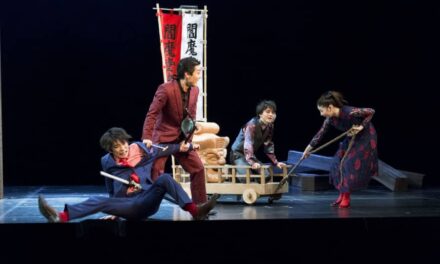Funding in Zimbabwean Theatre is a key challenge. There is no doubt that if one were to do an assessment of the state of Zimbabwe’s creative and culture industry, they would arrive at the conclusion that in the midst of all the challenges that are beleaguering it, one challenge is quite pronounced across the board and that is the lack of funding.
Most of the funding for the sector over the past four decades since the country earned independence has come from non-governmental organizations. These funds usually come with strings attached which are then reflected in the content created. For instance, when the donors want to bring awareness on health matters you will find that most production houses will be staging plays with health themes.
This is not a terrible concept. However, it also means that very few productions are produced with a commercial aspect in mind, which is one of the reasons why not many Zimbabwean shows have become national or continental hits.
This lack of a commercial drive which is evident in other art forms has stifled the growth of theatre. However, chief amongst the many causes is the lack of funding in Zimbabwean theatre.
Had Zimbabwean theatre makers the funding which allows them to produce work of their choice, the sector would be thriving given the amazing talent that it is endowed with.
Daniel Maposa, one of the revered minds in Zimbabwe’s theatre fraternity who has changed the perspective of how things are done by his elaborate artistry and administration skills talked to us about how the issue of funding is a critical component in the success of theatre globally.
“World over theatre mainly survives from funding or sponsorships than from gate takings. Probably Broadway might be the only place where gate takings can bring meaningful income to theatres. This is mainly because theatres usually always thrive most as an interpersonal medium than most other genres like film and music that are mass media,” Maposa said.
He continued, “For theatre to be totally enjoyed, it has to be very intimate with the audience. The more the people, the less intimate it becomes, and the more disconnected it becomes, hence theatre being built with certain maximum numbers. In that scenario, if one has to recoup the costs from gate takings, it means two things, firstly, either bring in as many people as possible into the auditorium and risk losing the intimacy expected of theatre or charge a high price and risky making theatre elitist. It becomes an issue of affordability versus accessibility,”
He also argues that theatre and other art forms are not only viewed through a commercial lens. The arts are a social good that should be enjoyed by everyone.
“Theatre falls into this category where its use is not only for entertainment but for the social wellness of society. For example, beyond entertaining, theatre is used as a tool for education, healing, social cohesion, identity formation, and therapy. Overpricing theatre would mean underplaying the other applied uses of the theatre mentioned above. It is the realization that theatre is more of social good than it is a commercial venture that propels governments all over the world to subsidize theatre and the arts so that the generality of citizens enjoy the benefits of interacting with the arts.” He elaborated.
Maposa is also a victim of drying funding streams. He used to host on an annual basis a vibrant festival dubbed, Protest Arts International Festival (PAIF) that gave local and international theatre production houses an opportunity to serenade theatre enthusiasts in the southern African country.
However, when most of the donors backing his festival left the country, it also vanished from the calendar of events.
“At PAIF, the theatre was one of the major genres we programmed. In fact, the theatre had many slots compared to other genres. It had almost 65% of the total shows at PAIF. This was because we had realized that at other festivals, theatre seemed to be at the peripheries. When we stopped PAIF, it automatically meant that theatre would be the most affected. At PAIF, we used to pay a flat fee for performing at the festival. All shows were paid for. We had realized that gate takings alone would not enable artists to recoup their costs. Even at big festivals in Africa where plays can be sold out, it’s difficult for the theatre companies to make a profit from gate takings. Armed with this knowledge especially in our context, we took a deliberate position to subsidize the theatre companies/performers,” explained Maposa.
Maposa who is also the brains behind Savana Trust added that the closure of PAIF meant that theatre companies lost the only festival that decently paid them for performing.
“PAIF was the only festival where performers were assured of an income. Otherwise, at all other festivals, they gambled with gate takings, which however would not be enough to recoup costs and pay each other. That is why even today, many theatre groups in Zimbabwe clamor for the return of PAIF because they did not only get exposure but some decent income.”
Maposa believes that the Zimbabwean government must now rise to the occasion and begin to fund theatre, covering the void which has been left by the donors who are now channeling funds to other things outside the creative and cultural industry. “It is my belief that governments should be responsible for funding their theatre. The primary funding for theatre must be from local sources. Failure to do that means that theatre will be supported by foreign countries who have their own agendas.”
“For example, countries that fund their own theatres, there is significant growth because they will prioritize key areas that support growth. However, if funding comes from outside, that funding government’s priorities will get more attention. Rarely are foreign governments more interested in growing the local industry but to open markets for their own theatre,” he shared.
Whilst the notion that the Zimbabwean government must start availing funds for the sector is noble, is it feasible given that the economy shrunk last year because of drought and is expected to shrink again due to the impact of Covid-19 in 2020?
This article was originally posted at The African Theatre Magazine and has been reposted with permission. To read the original article, click here.
This post was written by the author in their personal capacity.The opinions expressed in this article are the author’s own and do not reflect the view of The Theatre Times, their staff or collaborators.
This post was written by Takudzwa Chihambakwe.
The views expressed here belong to the author and do not necessarily reflect our views and opinions.


















